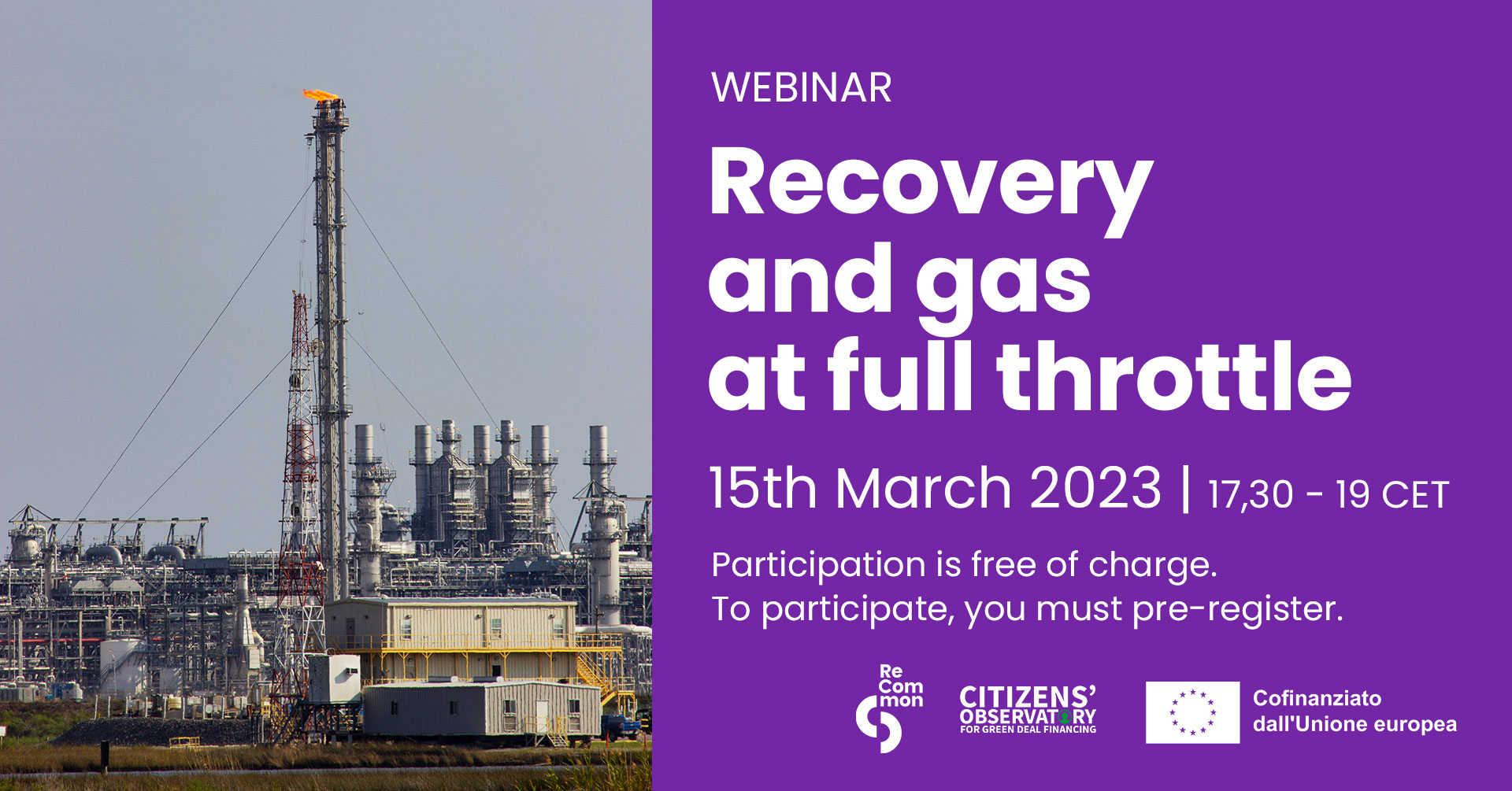
Russia’s invasion of Ukraine has brought about a push from EU Member States, the European Commission, and the gas industry for the greenlighting of numerous new gas projects, but the EU already has substantially more than enough gas import capacity to support the needs.
Aiming at disengaging EU from Russian dependence, the REPowerEU plan encourages Member States to add several new LNG terminals and pipelines, opening up the possibility of using various chapters of the European budget to finance them and allowing for a derogation from the ‘do no significant harm’ principle.
Proposed new gas infrastructure projects aimed at increasing the EU’s capacity for importing gas are incompatible with the European Climate Law’s requirement for gas usage to be steeply reduced by 2030, and is dramatically at odds with the Net Zero by 2050 scenario. Yet the risk of an infrastructure construction boom and a gas lock in for decades in Europe is now real.
During this webinar we looked at how Italy, Spain and Germany set their energy strategies in the framework of the REPowerEU plan. There have also been insights shared on the environmental, social and economic impacts of new LNG terminals, and which alternatives the civil society organisations want the governments to prioritise instead, thus giving space for the participants to ask questions and debate on the topics presented.
Agenda:
- REPowerEU and the relaunch of the gas agenda. The case of Italy.
- Spain as a “Gas Hub”? Risks and grassroots alternatives.
- Environmental impacts of new LNG terminals. The case of Germany.
News on ReCommon’s website
Recording from the webinar ‘Recovery and gas at full throttle‘

